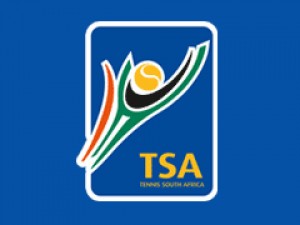MEDIA STATEMENT DELIVERED BY MINISTER OF POLICE, GENERAL BHEKI CELE AND MINISTER OF JUSTICE AND CORRECTIONAL SERVICES, MR RONALD LAMOLA ON THE OCCASION OF THE IMPLEMENTATION OF THE COVID-19 DISASTER MANAGEMENT REGULATIONS; HELD ON FRIDAY 20 MARCH 2020 AT GCIS PRETORIA
The background that informs our gathering here today continues to dominate the current affairs of the world and the country at large across the media spectrum. This subject remains a bone of contention as each day ends with escalating figures of confirmed cases of COVID-19 in South Africa. It is on that score that we address the media and South Africa on the enforcement of the newly gazetted Covid-19 Disaster Management Regulations; in stamping the authority of the state.
These Regulations spell out the necessary steps to prevent an escalation of the disaster or to alleviate, contain and minimise the effects of the disaster.
Section 10 of these Regulations empowers me as the Minster of Police, to issue directions to address, prevent and combat the spread of the COVID-19 in all police stations, police precincts, and holding cells.
I have therefore, directed the Management of the SAPS to implement measures that will see all members, particularly those who are in close contact with different communities who visit our police stations, provided with maximum protection against possible infection of the corona virus.
We have at this point procured essential hygienic supplies such as gloves and hand sanitisers for our police stations and our precincts; and urgent procurement processes are underway to ensure adequate supply. All Community Service Centres (CSC) in the country have been prioritised in terms of distribution; and I have instructed the Management of the SAPS to see to it that the members on the ground are provided for, and at the same time ensure that everyone on duty complies with the Covid-19 hygiene protocols, as a matter of urgency.
Members of the public who will be visiting our police stations for various reasons shall be required to cooperate with police members on duty regarding hygienic protocols that will be in place. For example, you will be sanitized accordingly as you enter the police station.
Equally, I want to also take this opportunity to appeal to communities to, as far as possible, limit walk-ins and visit police stations only if and when it is absolutely necessary. For instance, applications for police clearance, taking of fingerprints, renewals of firearm licences, certifying documents that are not urgent should rather be postponed to a time when the global outbreak is declared as under control.
Meanwhile, President Ramaphosa on declaring the State of Disaster, called for social distancing.
I have subsequently issued an instruction to the Management of the SAPS to suspend with immediate effect, the recruitment and intake of new trainees who would have commenced with police training in April 2020, at all SAPS academies countrywide. Measures have been put in place to ensure that Training Instructors at the SAPS Academies are utilised optimally in the implementation of measures of the SAPS to combat the COVID-19.
In terms of Section 3 that speaks to the prevention and prohibition of gatherings, the SAPS is empowered to act decisively and:
· order the immediate dispersal of a gathering where more than 100 persons are gathered.
· order the immediate dispersal of more than 50 persons gathered at premises where liquor is sold and consumed.
· take appropriate action in the event that the lawful instruction to disperse is not complied with, which may result in a fine, an arrest and detention.
In relation to Section 8 that addresses the limitation on the sale, dispensing or transportation of liquor, our appeal is for cooperation by the respective provincial liquor boards, the hospitality industry, owners of liquor and other outlets where liquor is sold and consumed on-site, distillers, and patrons, to adhere to the Disaster Management Regulations and protocols put in place.
I will together with the SAPS management next week, be engaging with the provincial liquor boards, gambling boards, the hospitality industry, and all other relevant stakeholders to solicit their commitment and compliance with the directives of the Regulations.
In as far liquor outlets, restaurants, hotels, and other hospitality facilities are concerned, no more than 50 people will be permitted at a time. This 50 is inclusive of the staff on the premises.
Using the example of a restaurant with a liquor licence, the restaurant can only sell liquor from 09h00 up to 18h00 on weekdays and Saturday. The selling of liquor must stop at 18h00 but the restaurant can continue to sell food. On Sundays and public holidays, the sale of liquor stops at 13h00. So basically, hotels and restaurants can continue selling food but must stop selling liquor from 18h00 and 13h00, depending on the day of the week.
In the event that a person bought liquor within the prescribed timeframe, that is between 09h00 and 18h00 and/or 13h00, public consumption outside of the prescribed timeframes is prohibited. No liquor to be consumed at, or in the proximity of any premises selling liquor and any public spaces.
The limit of people inside the restaurant will remain below 50 at all times.
On the issue of funerals and weddings, no more than 100 people will be allowed to gather any given time.
Where the event or ceremony can be postponed, people are encouraged to go that route for their own protection and for the protection of those they would have invited. It is important to understand that we, that is government and the public, can only successfully contain the corona virus, if we have voluntary cooperation from everyone. Let us all agree that we must arrest the virus and not arrest people. It is very easy to do the right thing for the benefit of yourself and the country.
I must also emphasise this – there is absolutely no special kind of permission that is issued by the Police or anyone else for events. The regulations are clear in this regard and should be adhered to. People are not required to apply to the Police for any kind of permission to host an event.
Failure to comply with any of these regulations, members of the SAPS, the SANDF and Peace Officers shall use their powers to act decisively and: order the immediate dispersal of a gathering or patrons at liquor selling outlets; and take appropriate action in the event that the lawful instruction to disperse is not complied with.
Allow me to also touch on the issue of fake news which can be criminalised in terms of the Disaster Management Regulations. I have refuted claims ascribed to me that certain police stations in the Western Cape would be shut down because of the corona virus. On the contrary, I have instructed the management of the SAPS to ensure that service delivery is not compromised in anyway. Police members on duty must be provided with maximum protection against the covid-19 so that they are able to continue with their duties, ensuring that the citizens of this country are and feel safe and secure. Beware, in terms of the Regulations, fake news can be criminalised.
Remember fellow citizens, these drastic measures are put in place not to punish South Africans but to protect everyone.
MINISTER OF JUSTICE AND CORRECTIONAL SERVICES
The Department of Correctional Services has not recorded positive cases of Covid-19 across all its centres in the country. We will continue with preventative measures which are aimed at combating the spread of the virus.
We appeal to all stakeholders across Correctional Services to be active agents in the fight against this pandemic. We reiterate that the best way to lower one’s chances of contracting the virus is to thoroughly wash one’s hands. Moreover, after sneezing, coughing, touching one’s face and using the bathroom. We must all master the art of preforming the 20 seconds hands wash which is one of the effective measures to combat the spread of the virus.
We have identified and are currently implementing the following measures across our centres to protect offenders, officials and stakeholders as well as to prevent infections, namely:
· Prohibiting visitors to all correctional centres for a period of 30 days. This will be reviewed on the 15th of April 2020.
· Appointment of Multidisciplinary Committees across all regions and establishment of partnerships with strategic stakeholders to help prevent the spread of the virus; this has happened in all the five regions;
· Implementing infection prevention control measures in all regions;
· Sanitizing and cleaning strategic areas across all centres.
· Availing basic hygiene essentials to offenders and officials. We are currently distributing the essentials which include gloves, masks, etc.
· Disinfecting keys and shackles
· Provisioning of surgical gloves to all officials handling registers, cash, letters and parcels
· Installation of secured liquid hand washing soap dispensers at all washing points
· Finalizing procurement for all needed essentials;
· Identifying isolation areas in all our Centres
· Engage the courts to utilize Audio Visual Remand System for postponement of cases we have 46 Audio Visual Remand sites across the country.
· Implementing responsive offender movement and control measures
· Conducting awareness campaigns to offenders, officials and stakeholders to prevent the spread of the virus.
· Mass screening of offenders and officials. This has commenced and we will vigorously roll it out across all Centres.
· We are currently looking at new communication measures between visitors and inmates
· Isolation of officials who travelled out of the country recently. We currently have four officials from KZN and Gauteng who have been isolated as a precaution after displaying presumptive symptoms.
There have been increased concerns from South Africans with loved ones in our Centres informed by the fear that Covid-19 poses a greater risk to those who are confined to narrowed spaces and those who are at a close proximity to each other.
We want to assure all South Africans that measures are in place to ensure that offenders are safe. Offenders have access to essentials, protective equipment and medical care which will lessen the possibility of them contracting the virus. Do not panic, let us work together and apply precautionary measures against our normal routines so that we can defeat this pandemic.
Access to Master’s Offices
MEASURES TO LIMIT CONTACT WITH THE OFFICES
General access to Master’s offices
In terms of the DMA and regulations no gatherings of more than 100 people shall be allowed. For this reason each office, depending on their capacity, will determine the number of public granted access to the office/building but shall not exceed 100. This is to ensure the well-being and safety of both the officials and the public.
Meeting of creditors
All meetings of creditors and/or interrogations will all be cancelled and up until 15 April 2020. Thereafter new protocols will be issued on how, by whom and where such meetings are to be convened. In respect of all other meetings that have already been convened and postponed those meetings should be further postponed by way of e-mail communication until such time as further protocols have been put on place.
Reporting of Deceased Estates
For all new matters where there are any disputes, family meetings will not be convened until 15 April 2020. Thereafter new protocols will be issued on how, by whom and where such meetings are to be convened.
In matters where an appointment has already been made and a dispute arises between family members, such meetings will be postponed up until 15 April 2020. Thereafter new protocols will be issued on how, by whom and where such meetings are to be convened.
In all new matters where there are no disputes, only the nominated representatives shall be allowed access to the office to report the estate.
Accept electronic documents
The following documents may be submitted electronically for the interim if it is accompanied by an affidavit confirming the correctness thereof, it is authenticated and that originals will be lodged when called so by the Master:
a) Bonds of security;
b) Requisitions in respect of insolvencies;
c) All hand delivered post to be placed in the postal boxes of each office this will include requests for applications for copies. Postal boxes to be placed at the main entrances of the buildings so as to limit the access to the building, wherein original documents can be deposited. A register shall be placed next to each box where lodgement of documents shall be recorded. These boxes to be opened every 12 hours, as the virus only survive on paper for 5 – 11 hours. The decision on the number of boxes to be place will reside with each head of office.
d) Issuing of appointment letters shall be managed on the following basis:
a. To e-mail letters of appointment to Agents and place originals in the respective pigeon holes in the offices for collection
b. Where appointees do not have access to email, such letters shall be made available at the offices for collection
e) Only urgent walk-in clients to be assisted with appointment letters, including Guardian’s Fund clients that need physically to be confirmed by way of MOVIT.
f) In all other matters only clients to be seen that have made an appointment and in the discretion of the respective official.
g) Queries by the public or stakeholders encouraged to communicate by e-mail and followed up telephonically if necessary within 7 working days. (To ensure this is a viable option, the Acting Chief Mater directs that officials should as far as possible be office bound. Any complaint regarding non-responsiveness to e-mails or calls without valid reason, will result in disciplinary steps.
h) Limit access to the building on an urgency basis in line with current guidelines issues by the President.
Court Access:
In terms of the court directives issued by the Chief Justice the courts are now restricted to Persons with material interests in a case, such litigants, accused, witnesses those who may be needed to provided support such as those accompanying children, victims of domestic violence and / or sexual abuse, elderly and people with disabilities, family members, representative of special interests or support groups and members of the media will be permitted to enter the court precinct.
Non-essential visitors will only be allowed into the court precinct with the permission of the Head of Court.
I would like to thank all the Legal practitioners who have contacted my office and have heeded the call of Thuma Mina.








